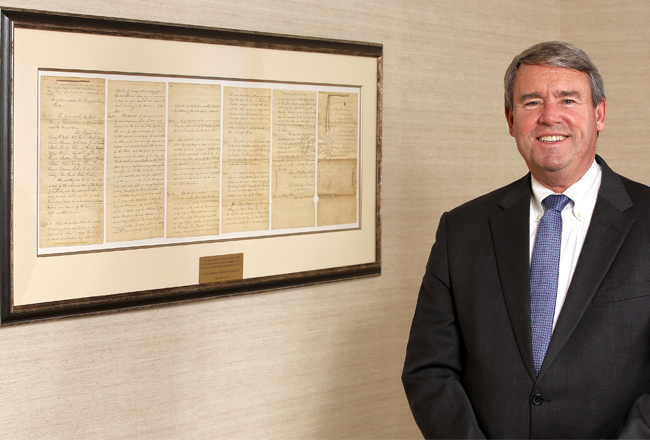Reopening businesses while a world-wide pandemic continues is proving to be not without its challenges. Government requirements for reopening must be met, best practices for health and safety of employees and customers must be implemented and a sense of trust and confidence must be instilled among those would-be customers who may have reservations about resuming normal activities.
A glimpse of how businesses in various categories are coping in Westchester can be found in a survey that was released Aug. 24 by The Business Council of Westchester”™s Economic Recovery Task Force. In Fairfield County, the Business Journal’s Kevin Zimmerman sampled what has been happening in its business community.
About 100 businesses from a variety of sectors participated in the Business Council of Westchester’s (BCW) survey and many communicated a sense of hope and optimism despite obvious recent struggles. Some of the sectors were energy, health and wellness, manufacturing, professional services, real estate/construction, retail, hospitality and restaurants and bars.
Only 1% of those responding said they anticipated closing in the short-term. There was a prediction by 44% that they would remain open but would continue to struggle, with 17% saying they would thrive and 25% saying they would break even.
About 53% of those responding said that business was down or significantly down compared with the same time last year, with 6 percent saying it was the same and 6 percent saying it was up. The rest said the question was not applicable or didn”™t respond.
A majority of the businesses, 43%, said they were classified as essential businesses and had never closed, while 36% reported that they had reopened in phases one through four of the state”™s recovery program. Only three businesses said they had not yet reopened.
Some business operators offered specific comments:
- Travel Agency – “We need additional financial relief from Congress. Travel is halted internationally, and with 34 states currently on NYS’ quarantine list. Domestic travel is at a standstill as well. 70% of travel agencies will close in 6 months without additional relief.”
- Dance School – “I am working hard to provide a safe and healthy environment for my students.”
- Design Studio – “Our parent company actually closed us down permanently because of the financial crisis with Covid and we opened a new firm in this chaos to keep our clients and try and make a go of it.”
- Florist – “I was able to continue my business working alone and only saw a slight drop. Web sales increased from 9% to 30% of sales, walk-ins decreased from 40% before Covid to 10% today.”
- Massage Therapist – “We are open and welcome new clients.”
- Construction Company – “We are thankful to be busy during these difficult times.”
- Engineering Services – “Need to keep municipal infrastructure projects moving forward, as well as private development projects. Without these projects moving forward everything in our industry screeches to a halt.”
- Accounting Firm – “Working on a remote basis has proven to be generally successful!”
- Insurance Agency – “We have been working the entire pandemic for our clients either remotely or myself at the office.”
- Financial Company – “We sent everyone home to work in mid-March and have operated the business successfully from these diverse locations ever since.”
John Ravitz, executive vice president and COO of the Business Council told the Business Journal, “This survey is another tool that we hope will be able to help both the state and county get a good understanding from the field of what businesses are experiencing, what some of their concerns and challenges are. We can be optimistic that people are keeping their doors open but we”™ve got a long way to go.”
He said that the survey was designed to get feedback from all sectors that play a pivotal role in Westchester”™s economic landscape.
“Obviously in Westchester County the hospitality sector has been hit the hardest and it”™s going to take some time to really be able to get a handle on recovery in that area,” Ravitz said. “It”™s going to be important for us to continue to do these surveys to make sure that we have benchmarks for how things are moving forward and as we continue the reemergence of the county.”
Marsha Gordon, president and CEO of the BCW, said, “We hope this information will give our elected officials a glimpse into how our recovery is proceeding and what more they can do to assist the business community.”™”™
Connecticut’s Lt. Gov. Susan Bysiewicz told the Business Journal, “We are doing so well with respect to our recovery ”” and I think we should all be very proud of that.” Back on April 29, Bysiewicz had announced that the state, working with the Connecticut Council of Small Towns, the Connecticut Conference of Municipalities and the state Council of Governments, was putting together local long-term recovery committees in an effort she is chairing.
In Norwalk, at The SoNo Collection’s Matt Seebeck told the Business Journal they have been doing “really great” since reopening May 20.
“We”™re pleased with the progress that”™s going on here, and we”™re very pleased with how the greater southwestern Connecticut region is doing. It”™s a testament to the hard work of the public health and public safety offices that people feel comfortable enough to come back to stores,” Seebeck said. He added that the Norwalk-based mall has seen “week over week growth” in foot traffic but declined to give specific data.
Seebeck said that rigorous sanitation and social distancing efforts are in place, including signs in common areas, reminders of each store”™s reduced capacity, and security officers on patrol to offer face masks to customers who may have forgotten about that particular mandate.
The mall”™s housekeeping team is also out in force, he said, constantly cleaning common touch areas and working overnight shifts to provide more comprehensive deep-cleaning services.
At The Hyatt Regency Greenwich, general manager Sherry Hicks-Buckles said of the three months and 10 days that the hotel was closed, “I think they were the longest three months and 10 days of my life.” The hotel, with 361 rooms and 12 suites, has been rehiring most of the 150 employees it furloughed when it was required to close March 24.
Along with corporate directives from the Hyatt Hotels Corp., Hicks-Buckles said the hotel utilized a number of resources from the state and the Connecticut Lodging Association, which together offered “a really good opportunity to check all the boxes.”
Employees are required to undergo daily temperature checks when they arrive for work, must wear masks at all times, use other personal protective equipment as appropriate, observe social distance guidance and use additional hand sanitizer stations.
Hicks-Buckles explained that after a guest has checked out, staff members will wait before entering the room and the sanitized room will remain vacant for longer than usual.
“We”™re taking a very methodical approach,” she said. “You can tell there”™s a fair amount of people who have not been able to travel for a while. They”™re glad to get out of their houses and see other people. It”™s exciting for them, as well as for us.”
“Looking back, it was the right decision (to close),” she said. “It was in the best interests of the safety of our guests and our employees, and that”™s something we intend to continue to make a priority.”
James Veal, co-founder and COO of DistanceDesigns in Easton said that the company is responding to Covid-19 by providing services and resources to create what it calls “agile” workspaces.
“We started to get a lot of our retail clients coming to us and saying, ”˜What do we do? How do we reopen?”™ Like every interior designer in the world, solving problems and addressing each client”™s needs comes with the territory,” Veal said.
He expressed the view that things are more complex now, and not just because of the coronavirus.
“Besides looking at the number of employees occupying a space, you have to look at how they interact with that space and with each other, in order to allow them to do their best work,” Veal said.
Veal said that DistanceDesigns”™ method of achieving that balance is based upon three pillars: removing physical hazards; delivering a space suited to the needs of a flexible, sustainable work environment for the future; and implementing policy and processes to reinforce the physical control of hazards and to promote an adaptable working atmosphere.
“Things may change quickly in regards to health and safety,” Veal said. “You don”™t know what the next health risk might be in the future, so we want to help our clients adapt as changes occur.”
With the travel and tourism hurting globally, the Connecticut Office of Tourism and the Department of Economic and Community Development have been running a $1.2 million marketing program that is scheduled to continue through Labor Day. It’s called “Good to See You Connecticut” and is designed to help reinvigorate revenues for the thousands of tourism businesses across the state.





















